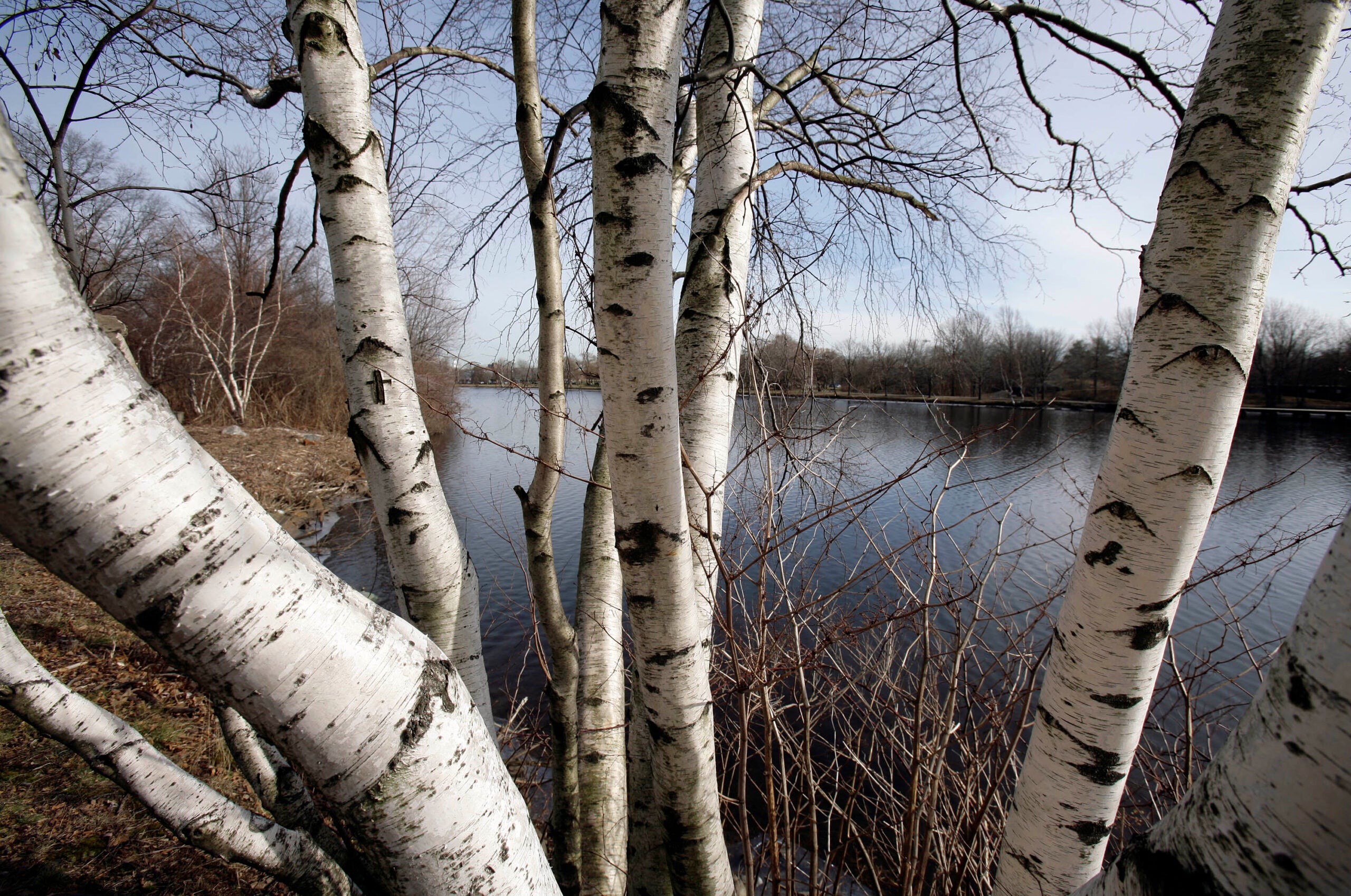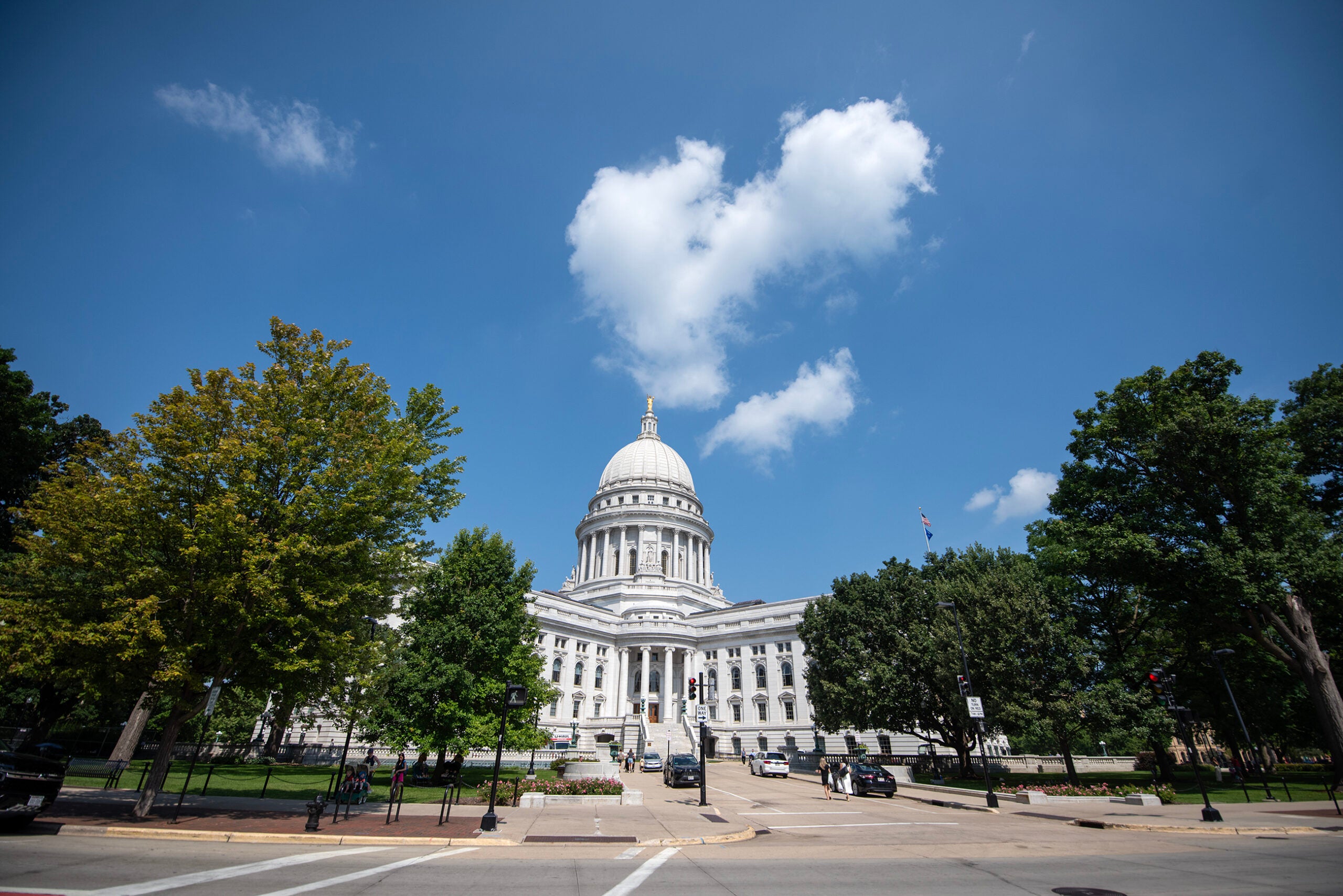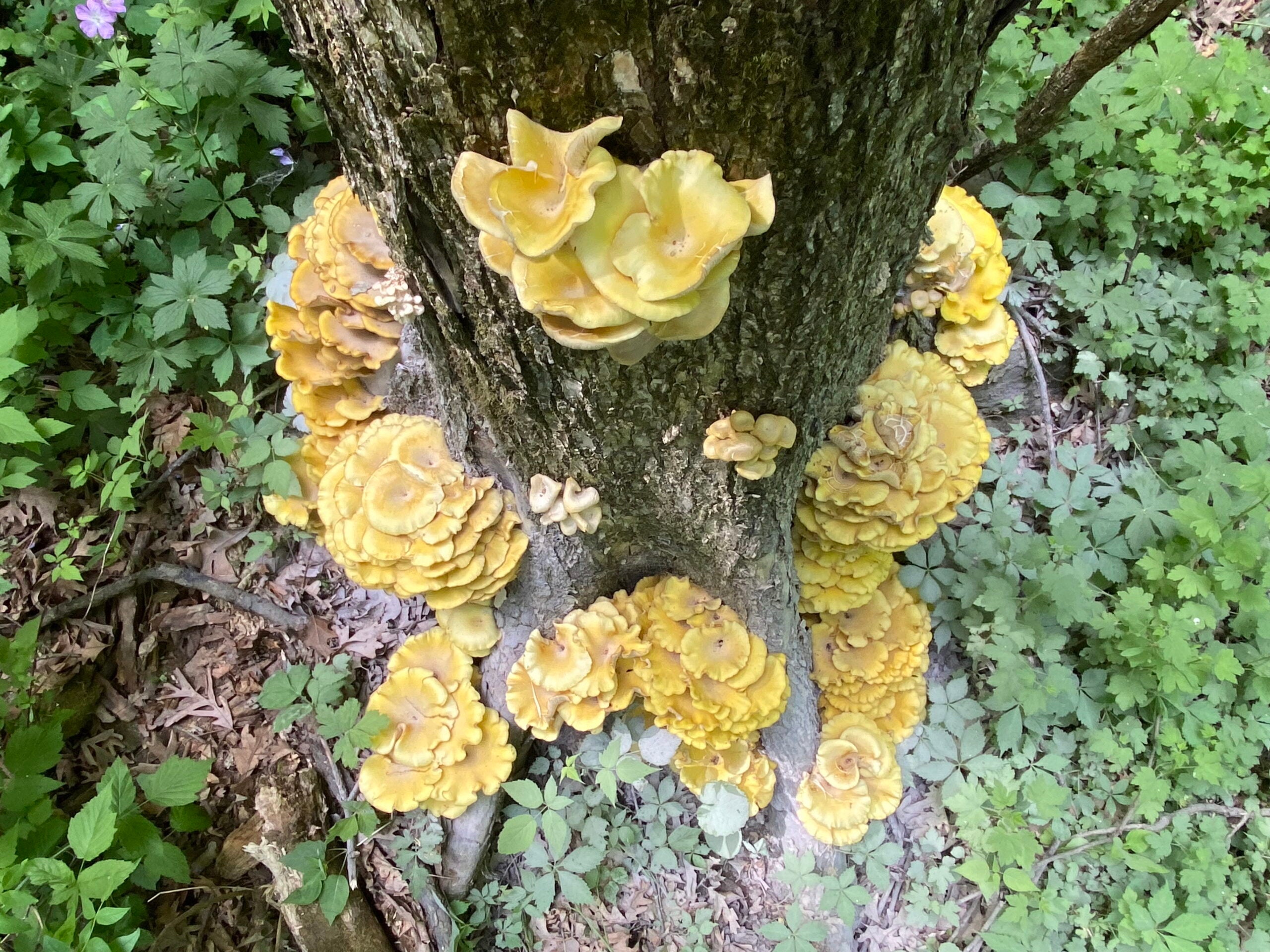People are illegally cutting birch trees from northern Wisconsin forests and selling the wood to buyers who are supplying a demand for wedding and home décor.
Buck Pettingill, assistant forestry administrator for Washburn County, said he first started noticing the thefts last fall. Since then, he said more than 1,700 birch trees have been illegally harvested from their county forest.
“The individuals I caught were actually bundling the limbs,” he said. “They were cutting the tree down. They’re taking the limbs off the tops.”
News with a little more humanity
WPR’s “Wisconsin Today” newsletter keeps you connected to the state you love without feeling overwhelmed. No paywall. No agenda. No corporate filter.
Washburn County Sheriff’s Office Chief Deputy Mike Richter posted on Facebook last month that birch theft has become the new trend in northwestern Wisconsin.
“This theft is replacing theft of scrap metal or copper that for a long time has led to quick money for drug addicts and habitual criminals,” Richter wrote in the post. “Thefts are occurring on county and state forests as well as on private property. The subjects responsible for our birch thefts have no regard for the resource, and hastily cut, load, and run from the theft site.”
Dave Zebro, regional conservation warden with the Wisconsin Department of Natural Resources, said they’re seeing damage to young stands of birch across several counties, including Ashland, Bayfield, Sawyer and Washburn counties.
“A lot of smaller birch trees being cut down — that 4-inch and less — that’s being sold for ornamental reasons and decorations and such,” Zebro said. “A number of folks are going out and really helping themselves to these trees without permits in violation of cutting rules from specific counties and our federal properties.”

Illegally cut and harvested birch trees in the Washburn County Forest this winter. Washburn County Sheriff’s Office
Federal, state and local officials will meet next week about what can be done to prevent the illegal tree harvests.
“We don’t necessarily want to get a bunch of people in the room and say, ‘Hey, how can we write a bunch of tickets?’” Zebro said. He said they want to educate birch buyers and sellers on how to legally obtain birch wood.
John Phillips of Hayward runs a side business where he sells homemade birch picture frames and other crafts. Phillips said he buys permits from the county or state to use dead birch wood, but he’s worried how the thefts will affect his reputation.
“People are going to question, ‘Where did that birch branch come from?’ Now, when people see me when they’re driving down the road, they look at you funny because you have birch on your vehicle,” Phillips said. “I’m not going to stop doing it because I do it the right way.”
Ed Schmocker, manager of Winter Woods in Glidden, said they buy wood from groups of people mostly in the Superior area. He said they sell birch wood to people who want to use it to decorate their homes.
“We have signs up all over the building, saying you need a permit if you’re going to cut anything,” Schmocker said. “If you’re cutting on private land, make sure you have written permission from the landowner.”
Schmocker said they have a paper trail for all transactions, but he said a lot of people are paying cash for birch wood in the area.
“We don’t want to ruin the resource because we want it as a long-term thing, but we’re ending up to have to go further both east and west,” Schmocker said. “We’re getting completely out of the national forest area. A lot of our stuff we’ll get from up by Superior.”
Pettingill, the assistant forestry administrator, said some trees that were harvested were in areas where the county was trying to regenerate birch growth in the forest.
“Lots of labor and time in order to create a seed bed to allow this white birch to become established,” Pettingill said. “You go through all that and then these guys get in there and it’s sapling-size and they’re in there cutting. It’s frustrating. They’re stealing it from the taxpayers of Washburn County.”
The county could have received more than $5,000 under current wood prices for the more than 1,700 trees that were harvested if they had grown to maturity, Pettingill said.
Wisconsin Public Radio, © Copyright 2025, Board of Regents of the University of Wisconsin System and Wisconsin Educational Communications Board.






